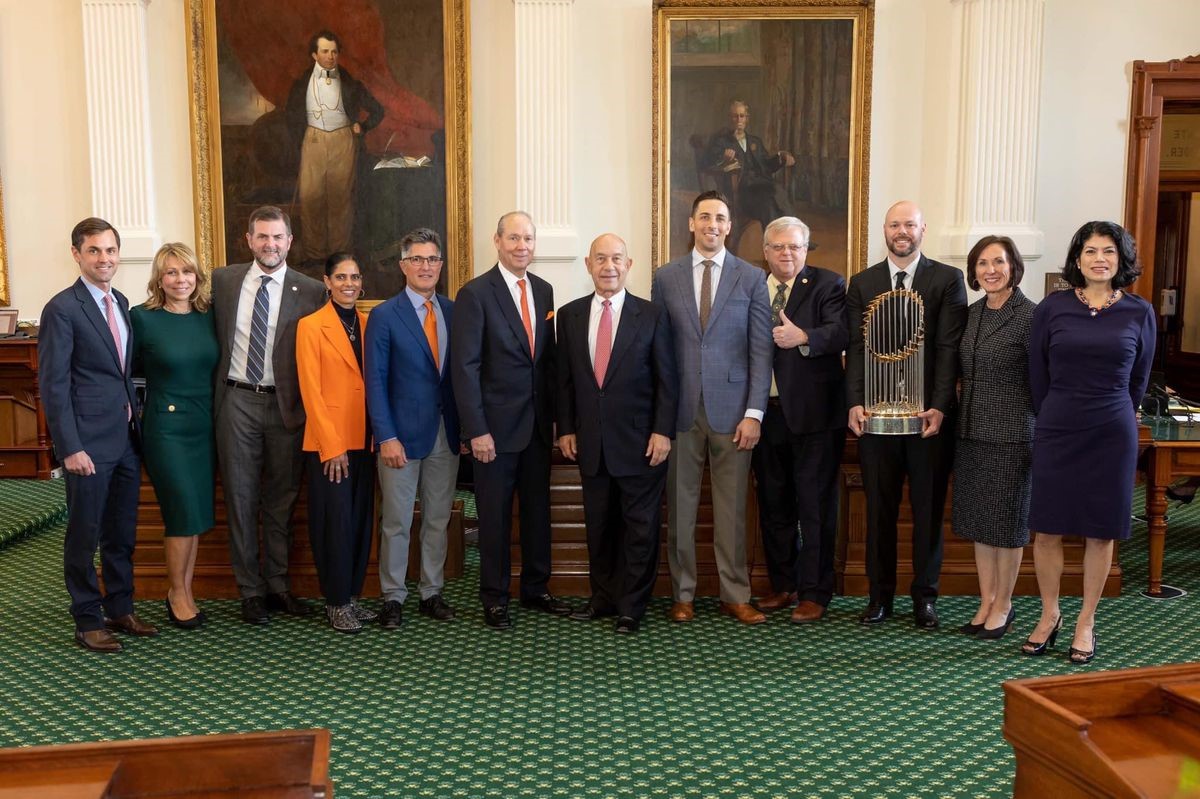HOU in ATX: Legislative Update – Week 2
Published Jan 20, 2023 by Taylor Landin
This week, Governor Abbott and Lt. Governor Dan Patrick were sworn in for their third terms and the House and Senate released their budgets. The Partnership provides a breakdown of budget items related to its Executive Priorities.
Gov. Abbott and Lt. Gov Patrick sworn in
On Tuesday, Governor Greg Abbott was sworn in for his third term becoming the second longest-serving Texas Governor.
The Governor’s inaugural address emphasized “Texas Exceptionalism,” highlighting the state’s historic budget surplus and our position as the economic leader in the nation.
During the address, Governor Abbott pointed to policy priorities for the legislative session, including:
• Improving power grid infrastructure
• Addressing parental rights in schools and public safety
• Carrying out the “largest property tax cut in the history of the state of Texas”
What's next: The Governor is set to formally lay out his priorities for the state’s legislature in the form of emergency items which will be announced during his upcoming State of the State address.
Lt. Governor Dan Patrick was also sworn in for a third term during the inauguration day festivities. Like the Governor, he highlighted strengthening the power grid, parental rights, infrastructure, and property tax relief as top priorities.
Why it matters: Both inaugural speeches contribute to setting the tone for the session and send strong signals about the issues most important to both statewide leaders.
Texas Senate and House release base budgets
On Wednesday, the House and Senate released their preliminary budget proposals for the 2024-2025 biennium.
Senator Joan Huffman (R-Houston), Chair of the Senate Finance Committee, and Representative Dr. Greg Bonnen (R-Friendswood), Chair of the House Appropriations Committee, both introduced proposals spending nearly $289 billion, including an unprecedented $130.1 billion in general revenue. The proposals stay within the state’s statutory and constitutional spending limits, and neither appears to dip into the state’s rainy-day fund.
The proposals may differ in some of the details, but both versions include:
- $15 billion for property tax relief,
- $36.1 billion for the Texas Education Agency - an increase in funding for public education compared to last biennium,
- $1.8 billion for pay increases for state employees, and
- $4.8 billion for border security.
Both proposals leave tens of billions in funding unallocated and given the unprecedented nature of the historic budget surplus, the proposed budgets will go through many changes over the next few months before final passage. The state’s biennial budget is the only bill the legislature is required to pass each legislative session.
Go deeper: In the coming weeks, we will examine important issues like public education and how each fared in the base budget. View the entire 1,000+ page budget proposals available online at SB 1 and HB 1.
Partnership’s top priorities in the budgets
The Partnership’s top priorities in 2023 were reflected in the base budgets released by the Texas House and Texas Senate.
Higher Education Funding
Both House and Senate proposed budgets include full funding for two of the Partnership’s top education priorities:
- $2.5 billion to fund a new endowment for universities such as the University of Houston that cannot currently access the Permanent University Fund
- $650 million for improvements to community college finance system and workforce development
Flood Mitigation: The Flood Infrastructure Fund (FIF)
Both House and Senate budgets allocate $400 million to the Texas Water Development Board (TWDB) for flood mitigation funding.
Yes, but: Key state leaders have publicly called for FIF to receive billions in re-investment. The budget allocation to TWDB is important, but significantly more funding into FIF is necessary to meet the flood mitigation needs of local communities throughout southeast Texas.
Flood Mitigation: Coastal Texas Program
Both House and Senate proposed budgets allocate $300 million to the Gulf Coast Protection District (GCPD) to provide a state match for the program (Coastal Spine/Ike Dike). The state funding is expected to cover the 35% federal match necessary to begin construction on the project.
Why it matters: The magnitude of this project exceeds the financial capacity of local governments. Without financial resources from the state, the project would not move forward.
House, Senate honor Houston Astros
Lawmakers took some time to celebrate the World Champion Houston Astros, with both the House and Senate passing resolutions honoring the accomplishment and welcoming the team to the floors of both chambers.
 The Houston Report
The Houston Report




















